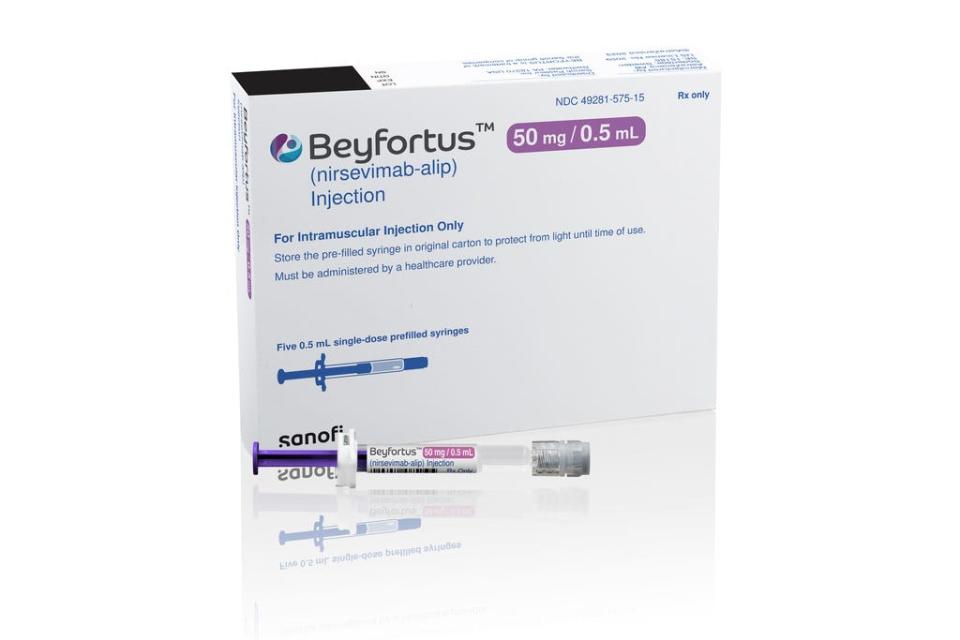The RSV vaccine: What you need to know.
- Oops!Something went wrong.Please try again later.
Starting this fall, adults over 60 will be able to get vaccinated against the potentially deadly RSV and for the first time there's now a tool to protect infants against RSV — an injection of monoclonal antibodies that lasts through the viral season.
RSV, which stands for respiratory syncytial virus, kills about 14,000 older adults in the United States and leads to severe disease in about 58,000 to 80,000 infants.
Unlike many other common infectious diseases, no vaccine has existed to protect against it. Until now.
Here’s what you need to know about the RSV vaccine and the new shot:
Who should get the vaccine?
The vaccine is recommended for adults over the age of 60 particularly those in communal living settings like nursing homes as well as those who have underlying health conditions, such as heart or lung disease, that put them at risk of developing severe cases of the virus. The official CDC recommendations advise doctors to discuss which their patients whether the vaccine is right for them.
How does the shot for infants work?
Nirsevimab, known as Beyfortus, contains monoclonal antibodies that protect against the virus for five months, according to the Centers for Disease Control and Prevention.
The shot is recommended for infants younger than eight months as well as children between 8 and 19 months old who are at risk of developing severe disease should they fall ill.
Dr. John Christenson, an infectious disease specialist at Riley Hospital, said the shot provides instant protection. "With this shot, you’re rock and rolling as soon as you get the shot.”
Unlike with a vaccine, where immunity can take up to two weeks to develop, nirsevimab works immediately but it cannot be used as treatment for a child who is already ill.
Ideally newborns will receive the shot before they leave the hospital just as they do the first hepatitis B shot, Christenson said.

Is this the first shot like this?
Doctors have used a similar product known as palivizumab to protect against RSV for the past 15 years or so for children younger two years old who had conditions that placed them at higher risk, such as congenital lung and neurological conditions.
Children on this therapy receive a shot every month and it is quite expensive, Christenson said, making it inefficient and not cost-effective for use in the general population.
What about a traditional vaccine for those under 60?
More than 50 years ago scientists started looking for a vaccine against RSV for children, Christenson said. They thought they were on track to find a vaccine that would work but trials showed that people who took the experimental vaccine actually developed severe RSV at a higher rate than those who had placebo.
So back to the drawing board they went. There’s hope that an effective vaccine against RSV might be on the way to protect children over the age of one as the immunity gained from nirsevimab wanes over time.
“It’s still in the works,” Christenson said of such a vaccine. “We won’t be seeing that one, at least this year.”
Another future RSV vaccine would target pregnancy. Vaccinating pregnant people would also produce antibodies in their unborn fetuses, allowing them to bring their babies into the world with protection against the virus.
More: Is it flu, COVID-19 or RSV? How to tell.
If the shot doesn’t offer longterm protection why take it?
Infants are at the greatest risk of developing severe disease that will require hospitalization, Christenson said. Children who first get RSV when they’re over the age of one are less likely to be as seriously ill.
So the shot will target children when they have the highest risk of developing severe disease.
“You may be shifting the disease, you may be shifting the infection to an older age,” he said. “The good news is that it’s an older age, where the likelihood of them having severe cases is lower…. If you look at this monoclonal antibody, it may be a better answer to prevent RSV in infants than giving vaccine in the first year of life.”
When is RSV season typically?
Typically RSV season starts in the fall and runs through the winter. Last year, however, hospitals and doctors saw a surge in RSV in the summer that by late fall had led to crowded hospitals, a trend they attributed in part to the pandemic.
This year, so far, appears to be a more typical one, Christenson said.
Contact Shari Rudavsky at shari.rudavsky@indystar.com.
This article originally appeared on Indianapolis Star: The RSV vaccine: What you need to know.

